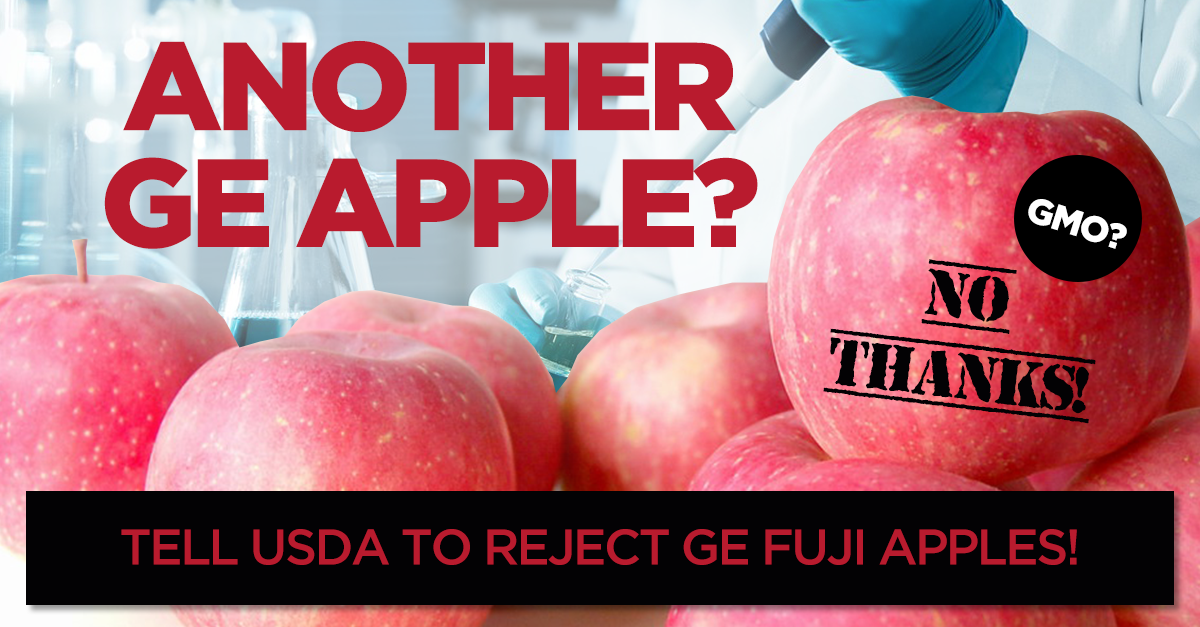
After decades of promises from the biotech industry that genetically engineered (GE) food would feed the world, cure the sick, reduce agricultural dependence on toxic chemicals, and save countless crops from imminent collapse, industry is poised to finally release a product they think will solve a problem humans have struggled with for centuries… an apple that doesn’t brown when you slice it… Seriously; we couldn’t make this stuff up.
Last year, despite comments from nearly 80,000 CFS members alone, USDA approved the first varieties of GE apples - Granny Smith and Golden Delicious varieties of Intrexon/Okanagan Specialty Fruit’s “Arctic Apple”. Now, the agency is proposing to approve a new GE Arctic Apple variety—a Fuji—using the same incomplete environmental and food safety studies used to approve the first varieties. Meaning there are no new studies addressing the concerns raised in the last comment period, and since the first GE apples haven’t hit the commercial market, there are no market data, either. This is simply a rubber stamp approval.
While these GE apples are a waste of time and money, we don’t want to downplay the real concerns about them. Pre-sliced apples are actually a frequently recalled food product. Once the whole fruit is sliced, it has an increased risk of exposure to pathogens. Since browning is a sign that apples are no longer fresh, “masking” this natural signal could lead people to consume contaminated apples.
Further, since FDA does no independent, pre-market safety testing of GE food there are several unanswered questions about the safety of GE apples. “Silencing” the genes that make apples turn brown when exposed to oxygen could have unintended consequences that will only be tested by hungry consumers. Although these apples are primarily targeted to the fresh-sliced apple market they could also find their way into non-GE juice, baby foods or apple sauce at the processing level, all products predominantly eaten by children and babies who are at increased risk for any adverse health effects.
Even the apple industry has opposed this genetically engineered product. The U.S. Apple Association, Northwest Horticultural Council (which represents Washington apple growers, who grow over 60% of the apples in the U.S.), British Columbia Fruit Growers Association and other grower groups have already voiced their disapproval of these GE apples due to the negative impact they could have on farmers growing organic and non-GE apples through contamination, and to the image of the apple industry as a whole.
If the apple industry doesn’t want GE apples, and consumers don’t want GE apples, who do these apples really benefit? As usual, this product only benefits the biotech industry and big food processing companies.
